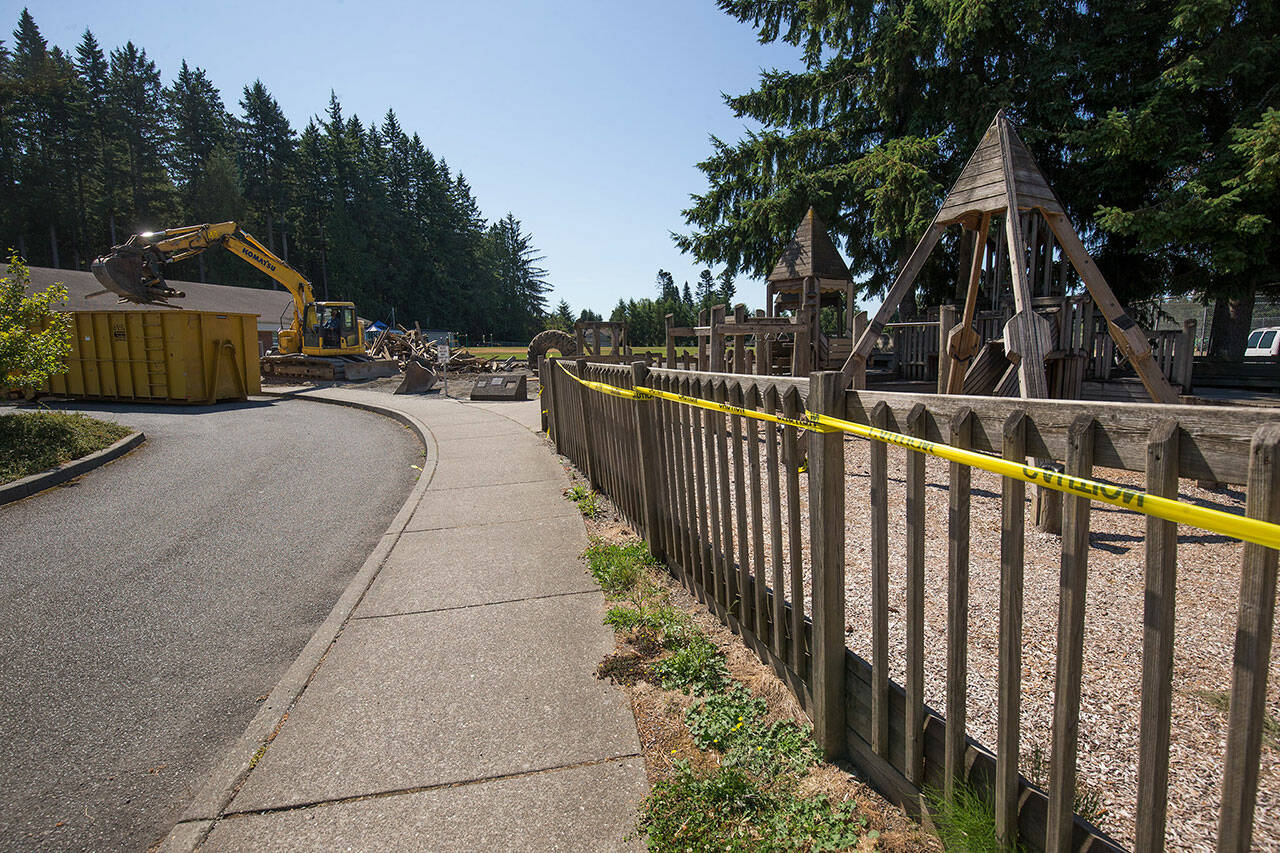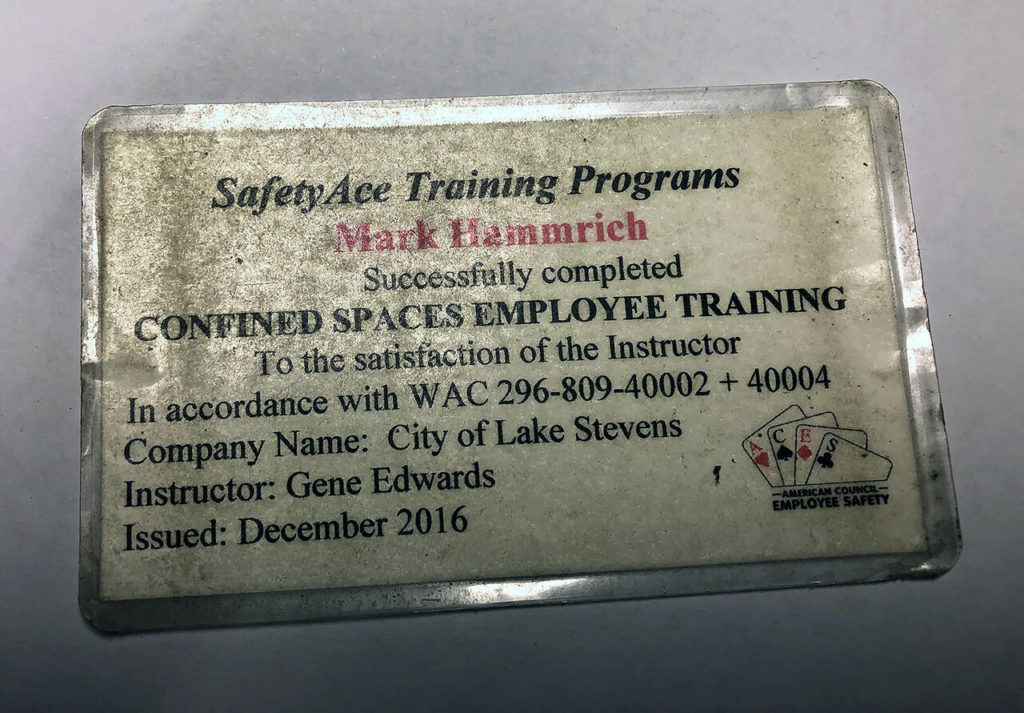LAKE STEVENS — In an appeal hearing with the state Department of Labor and Industries, Lake Stevens public works leaders and other city officials said some of the workplace safety violations they received were a result of poor communication with state officials leading the inspection — and a “rogue” employee’s actions.
After two inspections of the city’s public works department, L&I alleged 20 violations, resulting in nearly $20,000 in penalties.
The city appealed 10 of the 13 “serious” violations.
Serious violations are issued if workplace conditions put employees at risk of death or serious physical harm, according to the state’s Safety Standards for Administrative Rules.
“While the City recognizes some inadequacies in our safety program that need to be remedied, we believe the inspectors unfairly assessed and cited the City for multiple serious and general violations,” wrote Lake Stevens Human Resources Director Anya Warrington in the city’s June 30 notice of appeal.
The city made its case for L&I to waive or lessen the penalties during an informal appeal hearing Aug. 24. L&I has until Oct. 15 to issue a decision, according to L&I spokesperson Dina Lorraine.
Among the alleged violations, the city was cited for lacking the appropriate training for entering permit-required confined spaces. The most recent training was held in 2016.
The U.S. Department of Labor defines confined spaces as any space with limited entry and egress. They may include storm vaults, manholes, tunnels, ducts or silos.
“Once you are trained in confined space — you are trained,” said Tyler Eshleman, public works operations manager, during the appeal hearing.
The state requires employers to “establish employee proficiency in their confined space duties” and retrain employees if their knowledge or use of procedures is inadequate.
Nazila Shakibaei, the hearings officer leading the phone conference, said confined spaces are defined as “inherently dangerous due to reasonable expectation of poor quality air including oxygen deficiency, hydrogen sulfide and flammable gases.”
The city said in its notice of appeal that the last permit-required confined space entry was in 2018.
During the hearing, Eshleman said he has never signed or issued a confined space entry permit since he began at the city in December 2018.
However, according to employee interviews obtained by The Daily Herald through a public records request, public works employees told L&I inspectors that an employee entered a confined space on Jan. 13 as part of a stormwater maintenance project.
According to the inspector’s notes, the employee that entered the confined space this year received confined space training in 2016. During the Jan. 13 confined space entry, no respirator was used — “we winged it,” the inspector’s notes state.
The employee also told investigators that they did not know how to operate the air meter — a device used to measure the safety of the air in confined spaces.
City officials asked for the violation to be dismissed, “because in our mind there was no entry,” Warrington said during the hearing.
Public Works Director Eric Durpos told the hearings officer “this is a case of a rogue employee.”
Eshleman echoed Durpos’ sentiment.
“I firmly believe that it was — he just made entry for whatever reason, just because he felt like it,” Eshleman said during the appeal hearing. “And for the employees to make mention that I don’t take safety seriously, or are concerned with their safety — that’s a negative statement. But I do take it very seriously.”
Liz Brown, business agent for Teamsters 763, which represents employees in the city’s public works department, sat in on the appeal hearing.
Union members at the city have been raising issues with workplace safety for years, Brown told The Herald. Finally, she said, the state is attempting to penalize the city.
Brown said she “didn’t hear anything from the public works director that led me to believe that he’s going to change the way he operates in the workplace.” She added, “the city made excuses and tried to deflect blame.”
Both during the spring inspection and the August appeal hearing, the city fell short of providing the required documentation pertaining to training records and workplace safety programs.
In response to a February email from L&I inspectors asking the city for additional documentation of training records, Eshleman said a “competent person” led the most recent confined space training. In regard to the city’s chemical hazard program, he said “the binder is very large” and asked inspectors to review it in person.
During the appeal hearing, Shakibaei asked the city to provide a list of the employees who made confined space entries.
Warrington said the employees would not make entry unless they were trained; “so if they weren’t on the 2016 (training) list, they wouldn’t make entry.”
The second lot of violations pertained to blood-borne pathogen exposure program and training, as well as Hepatitis B vaccination records.
During the appeal hearing, Warrington said L&I inspectors never asked the city for its blood-borne pathogen exposure control program. She said, in the notice of appeal, the city was not asked for its documentation of employees’ Hepatitis B vaccinations, either.
However, the city has been “behind on offering these in the last couple years,” she said.
Despite the errors the city believes inspectors made in their findings, the inspection results have contributed to the city’s reevaluation of policies and procedures, Mayor Brett Gailey told the Herald.
“I think it’s important to recognize that maybe some of our policies and procedures haven’t grown with the size of the city,” he said.
The city is considering creating several new positions in public works, including a deputy director of public works to oversee safety, a surface water manager to assist in “additional oversight, workload and compliance,” and an engineering technician to collect and maintain stormwater data and initiate GIS mapping.
The city recently hired a storm supervisor and city engineer.
Next, Gailey said, he hopes the city can begin working toward accreditation through the American Public Works Association. Only five cities in Washington are accredited through the association.
Brown said the city has a long way to go.
”I would actually describe it as toxic workplace culture,” she said. “Because of that, I think there’s a focus on — I think the city believes that their biggest problem is disgruntled workers. Employers have to be willing to be challenged by their employees. I think that attitude about ‘You work for me; You shouldn’t question me’ is an impediment to building a workplace culture where people feel empowered to speak up, not just for safety, but for a host of other issues.”
Isabella Breda: 425-339-3192; isabella.breda@heraldnet.com. Twitter: @BredaIsabella.
Talk to us
> Give us your news tips.
> Send us a letter to the editor.
> More Herald contact information.


























